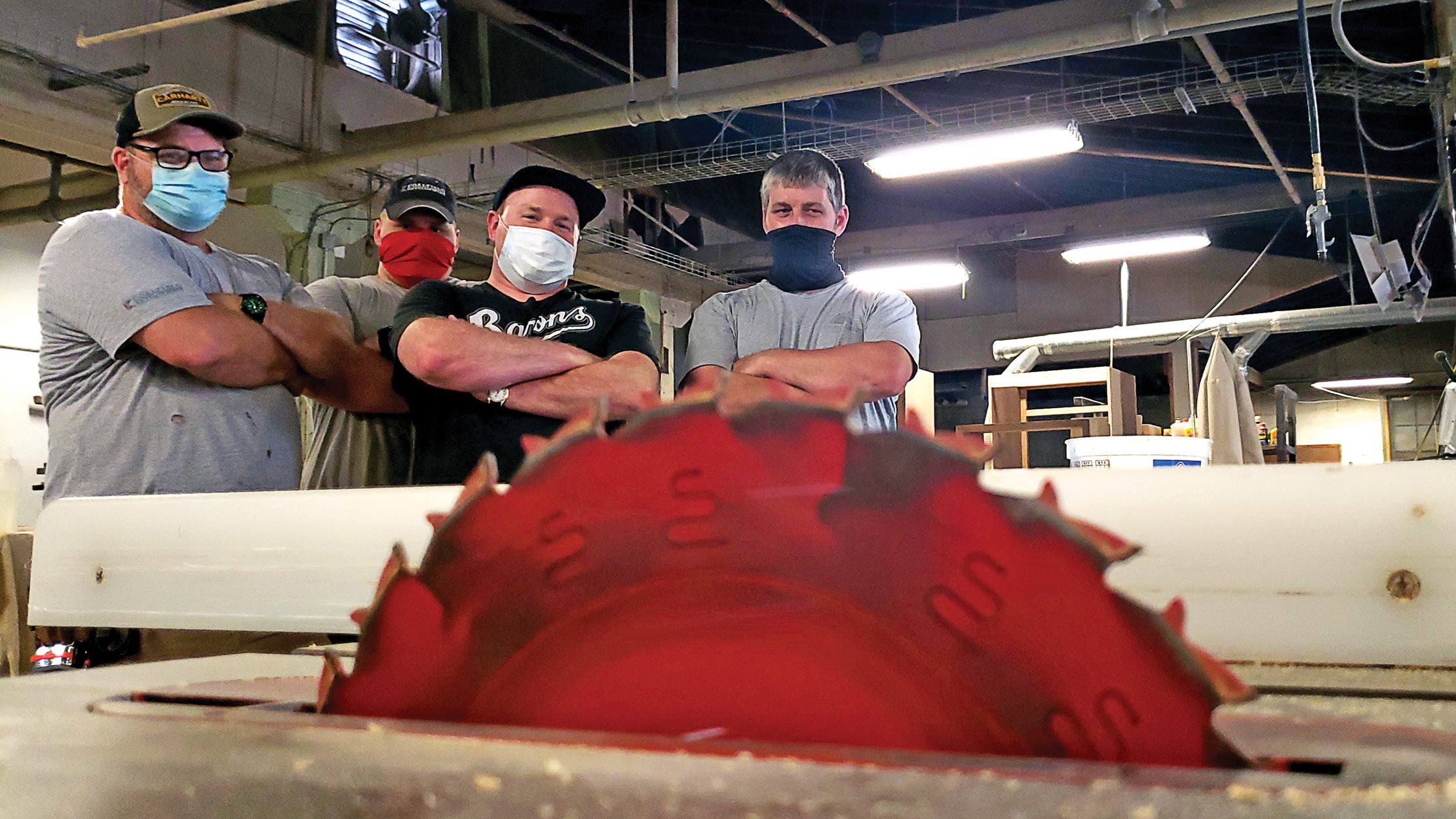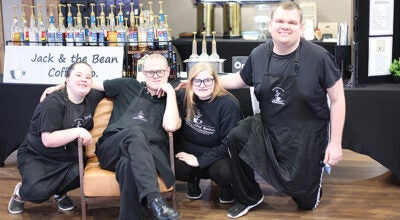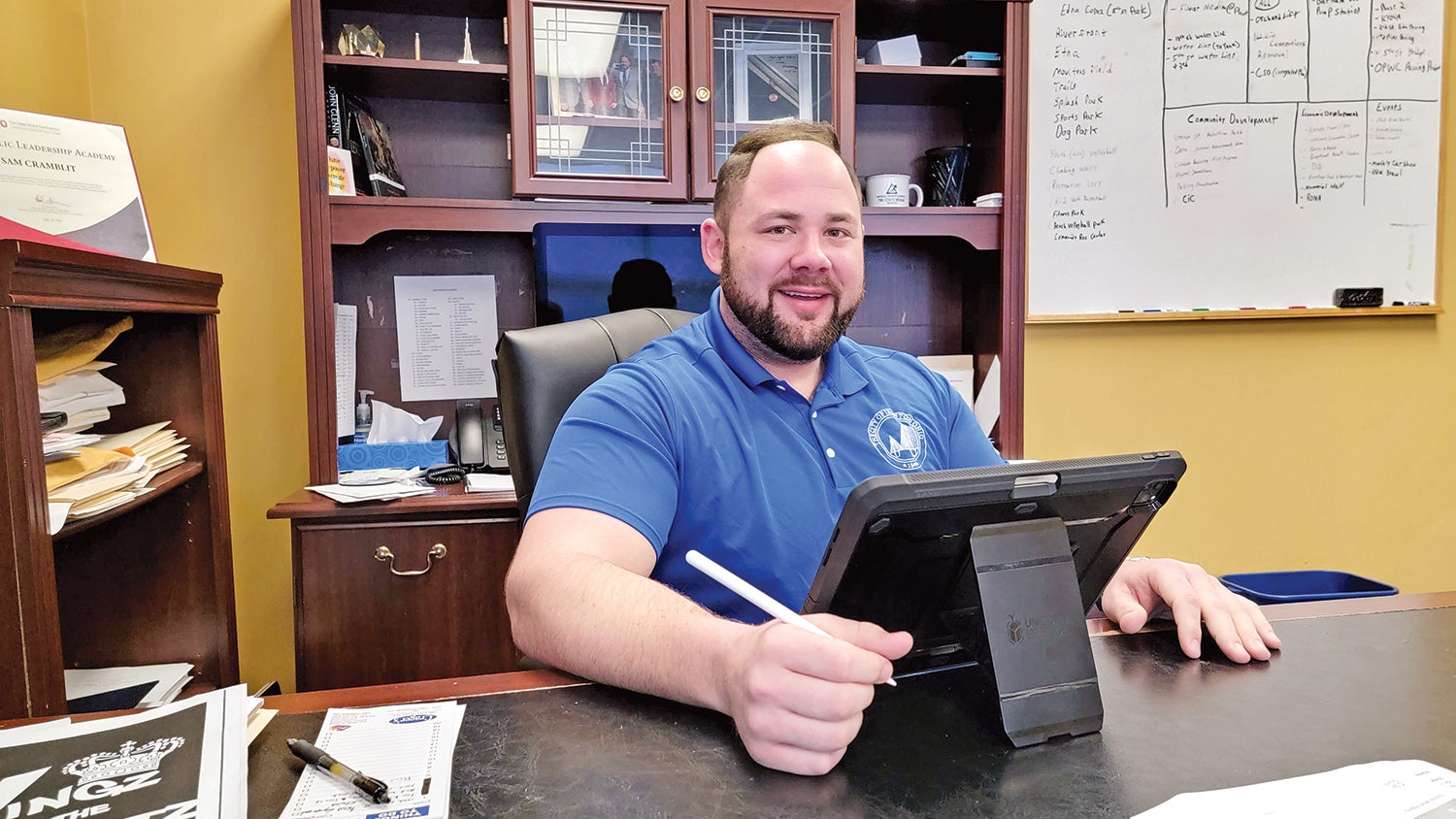Old school, modern craft
Published 2:03 pm Friday, January 15, 2021

- Eddie Austin is a builder. As the owner and founder of EA Woodworks based in Hamlin, West Virginia, he and his small crew create elegant custom furniture, cabinets, jewelry boxes and more. Collections of his work can be found in homes and galleries from Chicago to Philadelpia. (Photography by Mark Williams)
By Mark Williams
Eddie Austin is a builder. As the owner and founder of EA Woodworks based in Hamlin, West Virginia, he and his small crew create elegant custom furniture, cabinets, jewelry boxes and more. Collections of his work can be found in homes and galleries from Chicago to Philadelpia.
The company stays busy year round, with 20-week lead times and custom orders from all over the country. But, here at home, with the help of the non-profit organization Coalfield Development, Austin is building something much bigger.
Around five years ago, Coalfield Development was in the early stages of creating a woodworking program as part of their workforce development mission. The organization wisely tapped Austin to help set up the woodshop, supply it with machines and tools and lead the initial classes at the new program. Today, with Austin now serving as the program director, Saw’s Edge Woodshop flourishes. Housed within the revamped West Edge Factory in Huntington, the facility functions as a unique combination of business and training ground.
“We have a bunch of different levels of woodworkers in our program. Some people come in and they’ve never used a drill, but maybe they’ve swang a hammer,” Austin says with a laugh. “So we start from zero and work up to a two-year degree. By the time that they leave our shop, they’re capable of building custom things and operating equipment without supervision.”
Learning and teaching an ancient skill like woodworking in an increasingly automated world is a difficult balancing act, but one that Saw’s Edge openly embraces for the sake of their students. While Austin himself is “100 percent old school,” he remains open-minded and recognizes the need for a well-rounded and modernized curriculum.
“We’re creating the modern craftsman with a mixture of old world joinery and new technology. We are trying to train individuals to be able to completely work with their hands, so if they go into that job at a studio or a furniture shop, they are prepared for that. But we’re also training them to be able to go to work in a cabinet shop, where maybe some of the components are controlled by a machine.”
Like all organizations within the Coalfield Development project, Saw’s Edge strives to be more than just a woodshop. Students who finish the program not only receive a two-year associate’s degree, but also graduate with two years of invaluable on-the-job training.
“Most people that graduate with a college degree don’t have that on-the-job experience, so they don’t have a lot of prospects when they go to get a job. But the beauty of our program is they come out with a degree and they can say ‘I built this, this, and this. I can run these machines.’ It is a really unique program that you don’t see a lot.”
While custom woodworking is the main focus of the Saw’s Edge shop, the program also incorporates academic classes and life-skills training as well.
“We follow what we call the ‘33-6-3’ model. Crew members work 33 hours a week in our woodshop, building custom furniture, different woodworking projects and just learning the trade. They also go to school for six hours a week at one of the local community colleges. And three hours of their week is personal and professional development, where we focus on things like how to better your health, how to balance your checkbook or how to change a tire. Things that high schools have basically gotten rid of.”
Saw’s Edge and Coalfield Development share missions based on retraining, repairing and preparing Applachian communities for the future. However, nothing could have prepared them for the COVID-19 pandemic. Forced to work and teach from home for almost two months, Austin quickly adapted and developed weekly online lesson plans for his students that involved studying the work of famous craftsmen and designers throughout history.
The team also used the down time to design an entirely new product line, which was released in June and available in their online shop and at local retailers like the Red Caboose. Not content to stop there, Austin and crew chief Travis Jones also designed and prototyped some emergency knockdown beds that the team could make and assemble easily in case hospitals in the area were running low.
“Thankfully things haven’t gotten too far out of hand here, and we haven’t had a major need for it, but we were prepared just in case.
In the wake of the pandemic, many people and businesses in the region find themselves grappling with a precarious future. Groups like Coalfield Development and Saw’s Edge are no different. But these organizations embody the resilient spirit of Appalachia, and like the handcrafted woodworks made at Saw’s Edge, they were built to last.
“We have three main values at Coalfield: grit, grace and gumption. We believe that’s what it takes to run a program like this. And I can tell you that the people who work at Coalfield are scrappy fighters. Their first reaction to the pandemic wasn’t to fold. We are pushing forward and we are going to keep training people and keep trying to help our community out.”





